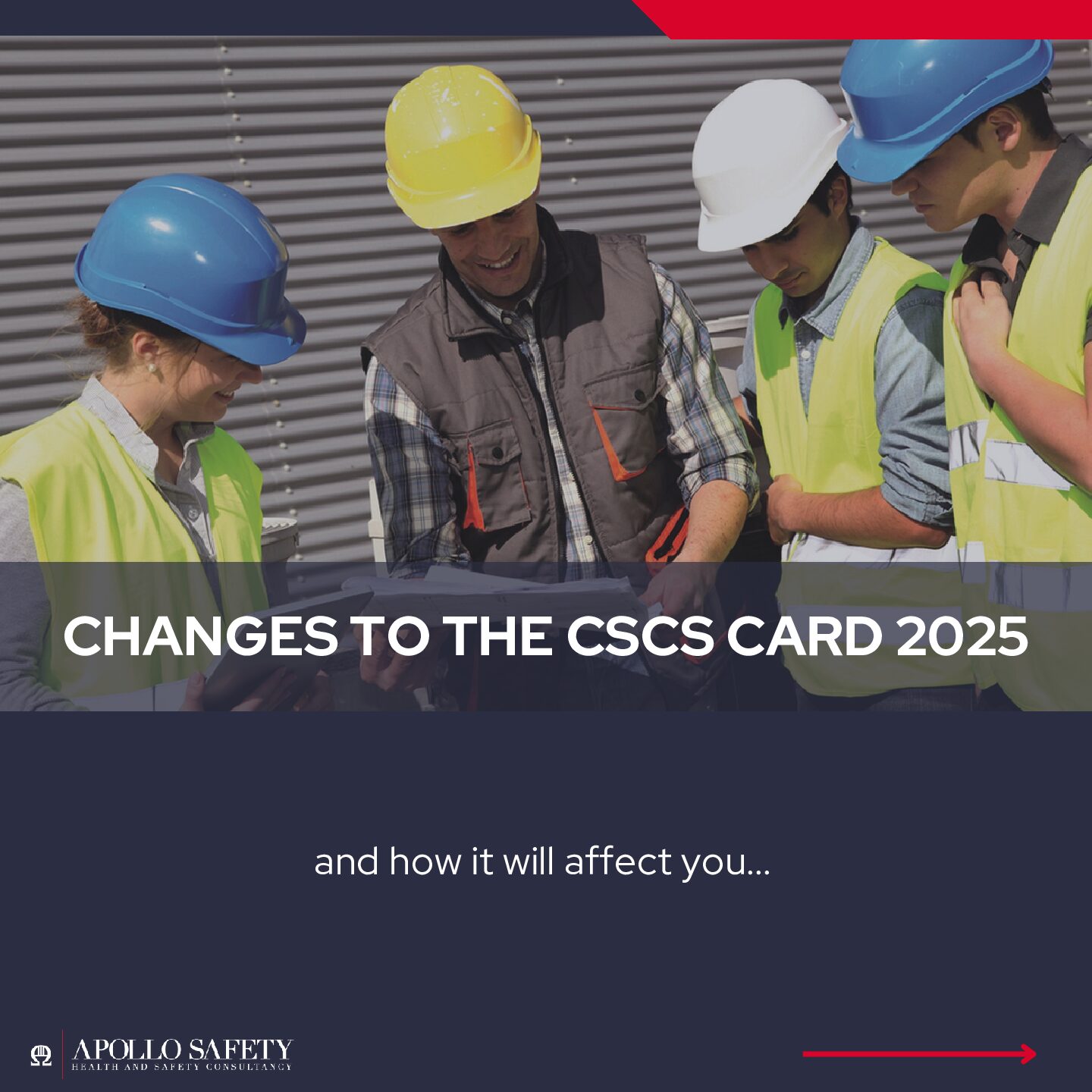The CSCS Card (Construction Skills Certification Scheme card) is a widely recognised certification scheme in the UK Construction industry. Tailored to the varying roles in theConstruction industry, it aims to improve standards and ensure workers on construction sites have the necessary knowledge and skills to perform their roles safely and effectively. For example, the “Green” …
CSCS Card Changes Everything you need to know for 2025



The CSCS Card (Construction Skills Certification Scheme card) is a widely recognised
certification scheme in the UK Construction industry. Tailored to the varying roles in the
Construction industry, it aims to improve standards and ensure workers on construction
sites have the necessary knowledge and skills to perform their roles safely and effectively.
For example, the “Green” Card is held by laborers, and the “Gold” is for those within a
supervisory role.
The legislation around these cards has been the same since 1995, when the CSCS card
was introduced, with workers allowed to obtain CSCS cards, based on employer
recommendations and their experience on the job, without needing formal qualifications –
these are commonly referred to as “Industry Accreditation” (IA).
However, since the 2010’s there has been an increased emphasis on the need for formal
qualifications and the increased demand for a show of high standards and competance,
leading to scrutiny of IA and now, as of 2024, the withdrawal of them.
This shift, and the changes to the scheme listed below, are part of a broader effort to align
with the vision for a fully qualified, construction workforce.
Changes you need to know:
• Industry Accreditation (IA) Cards issued after January 2020, expired on 31st
December 2024 and cannot be renewed.
• The CSCS stopped issuing IA cards on 30th June 2024
• Any card obtained through Grandfather Rights expired on 31st December 2024.
• Anyone holding a card through Grandfather Rights must apply for a new card
through an alternative route – this usually involves achieving a construction–related
qualification such as an NVQ.
• Starting February 2025, new labour cards will be valid for 2 years instead of 5.
However, workers who continue in labouring roles can renew for 5 years by providing
evidence of employment
• The CITB Health, Safety, and Environment test used for the initial application will be
valid for 3 years, allowing it to be used for renewal.
These changes are intended to encourage workers to upskill, in response to a growing
expectation that people working in construction should be able to prove their skill level and
effectiveness.
Timeline Highlights:
• 1995: CSCS scheme introduced, including Industry Accreditation as a transitional
measure to allow experienced workers without formal qualifications to access the
certification.
• 2010s: The construction industry increasingly emphasised formal qualifications and
competence standards, leading to scrutiny of IA.
• 2020: CSCS announced the phased withdrawal of Industry Accreditation cards,
with a deadline set for December 31, 2024.
Post-2024: From January 1, 2025, all IA-based cards will expire, requiring workers to hold
recognised qualifications (e.g., NVQs or SVQs) for continued certification.
The slow transition of the IA implies that they were never intended to be a permanent
solution, and it is now that they are acting upon the growing demand for an updated
solution to ensure better safety and competence across the workforce.
These changes have marked a significant milestone in the construction industry’s journey
to a safer and more knowledgeable workforce. For Employers, it’s a chance to build teams
that are not only certified but also equipped to meet the complex demands of modern
construction.
By embracing these changes and taking proactive steps, such as enrolling in assessment
routes like the Level 1 Health and Safety in a Construction Environment (Leading to a CSCS
Green Card) — more information here (LINK) – construction professionals can future-proof
their careers and continue contributing to an industry that prioritises quality and safety.
Like anything, the changes are challenging to navigate at first, and whether employer or
worker, if you need any help or support around this, whether it is information about
upskilling, or just a chat about how these changes affect you, get in touch today at
info@apollosafety.co.uk.
Apollo Safety – Safety Solutions, Tailored to You




